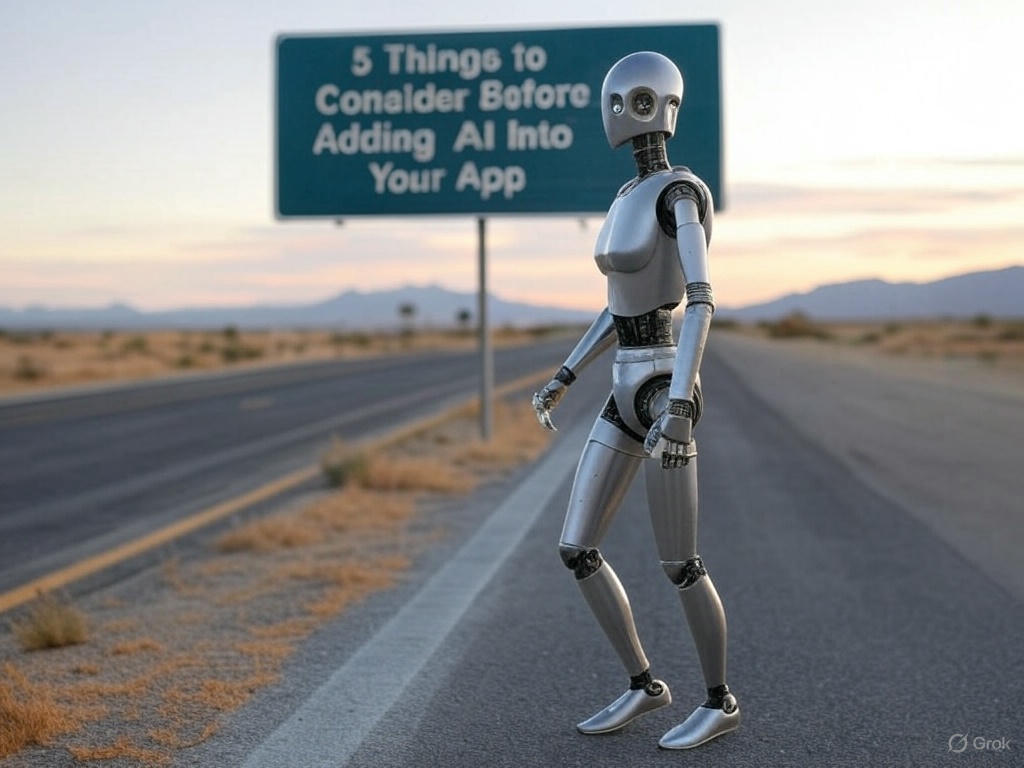Tuesday, July 12, 2022
-
3
min
Don't expect your app to take off from day one, building a digital product is a marathon not a sprint
An app launch should be an exciting time, right? After all those late nights, working weekends and cups of coffee, your product is finally released into the world – and users everywhere finally get the chance to fall in love with it.
But for too many businesses, the buzz drops off pretty quick when they realise those users aren’t flooding in as expected.
The sad reality is that out of the thousands of apps released to stores each day, only a handful will ever get that lucky break and explode overnight. So if you want your app to succeed, you need to be prepared to play the long game.
Read "E-commerce recurring revenue — here’s why apps rake in more than websites".
Know your product roadmap before the launch
When you're bolting together your MVP, it's pretty common for tunnel vision to set in. It's something we see all the time, especially with companies building their very first app. All the focus is on the technical aspects of getting a finished product out the door, and anything else falls into a "deal with it after launch" pile.
But you need to work on more than just your core features if you're going to give your MVP the best fighting chance. It's not your code but your users that will really make or break your app, and marketing campaigns are every bit as essential as development sprints.
It's not enough just to know your ideal customer profiles. Your target audience isn't going to be opening the app store every day, checking for a solution to whatever problem they have. You need to go to them, draw them in, and engage them once they become users to make improvements to your product.
Speaking of making improvements, what resources have you set aside for those? Mobile apps need constant maintenance from day one, even before you get into major bug fixes and feature releases.
All too often we see companies put their whole budget into making their MVP, then plan to keep the lights on with the revenue it makes. But the reality is most apps won’t be supporting their own server and development costs straight out of the starting block. If you only focus on getting onto the app store, you’ll struggle to support it once it’s there.
Set the right goals
Launching an app isn’t about trying to get a million users with version one. It’s about establishing that first foothold in the market, which means enough users to validate the idea and start getting some feedback. That might not involve headline-making numbers, but it’s a more realistic expectation for your launch.
Having fewer users early on can also help with building up your product and your business. If you've only got 100 people on board at first, it's easier to engage with the majority of users directly on what does and doesn't work in the app. Then when more users come in, they're downloading an app that's more polished as a result.
It might be that you’ve only got a few users to start with because you’re staggering your launch geographically. You can also make this work to your advantage. As well as getting that greater depth of feedback from your smaller user group, you can also use the exclusivity to drum up marketing buzz outside of your launch area.
Embrace the long game
The bottom line when it comes to being a digital product owner is that you've got to be prepared to be in it for the long haul. As much as everyone hopes their app takes off overnight, some can take 18 months or even years of iteration before they start to see the snowball effect.
Rather than try to fight this reality, you can work it into a long-term strategy. Something we've often done with clients is build a web version of the app first. The navigation and user experience feels like a mobile app, it can still be downloaded to a home screen, and it's a potentially cheaper way of validating your idea at launch. Then when things take off, there's the option to deploy a fully React Native product on the app store.
Generally a mobile website isn’t going to be the end goal for most businesses. Mobile apps offer too many benefits in terms of their sticky user experience and the way you can integrate directly with operating system features. But if you approach launching an app as a long-term project rather than a single event, it opens up more strategic avenues to explore.
More than anything, it takes faith to see that through. You've got to truly back your core concept and believe your intended users are out there. If you're just in it for the money, it's going to be a painful time. But if you can keep your expectations low and your energy high, the marathon won't feel so long after all.
If you’re looking to get your app project off the ground, speak to us to see how we can help.




.jpg)








